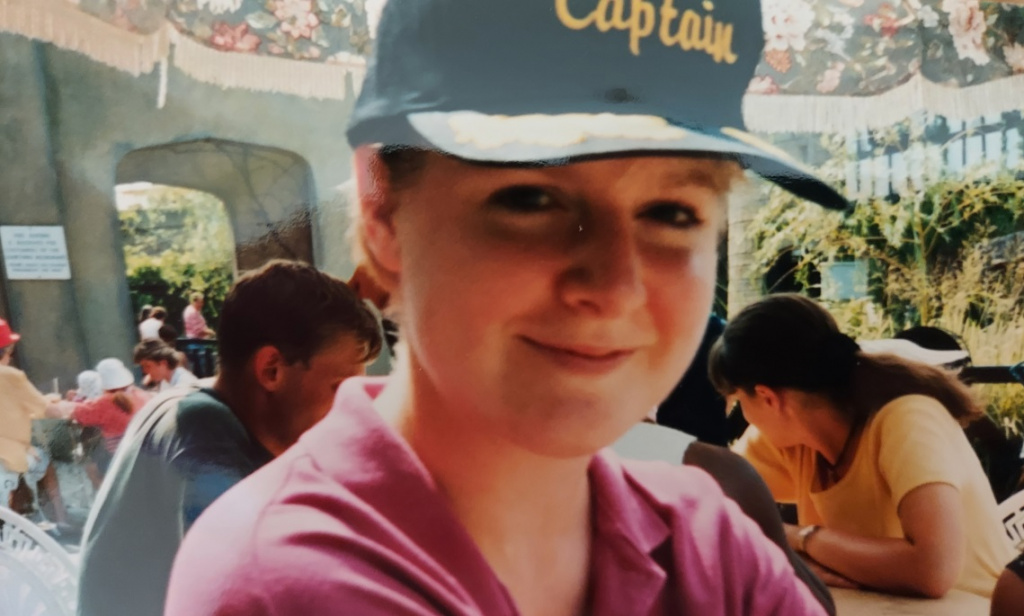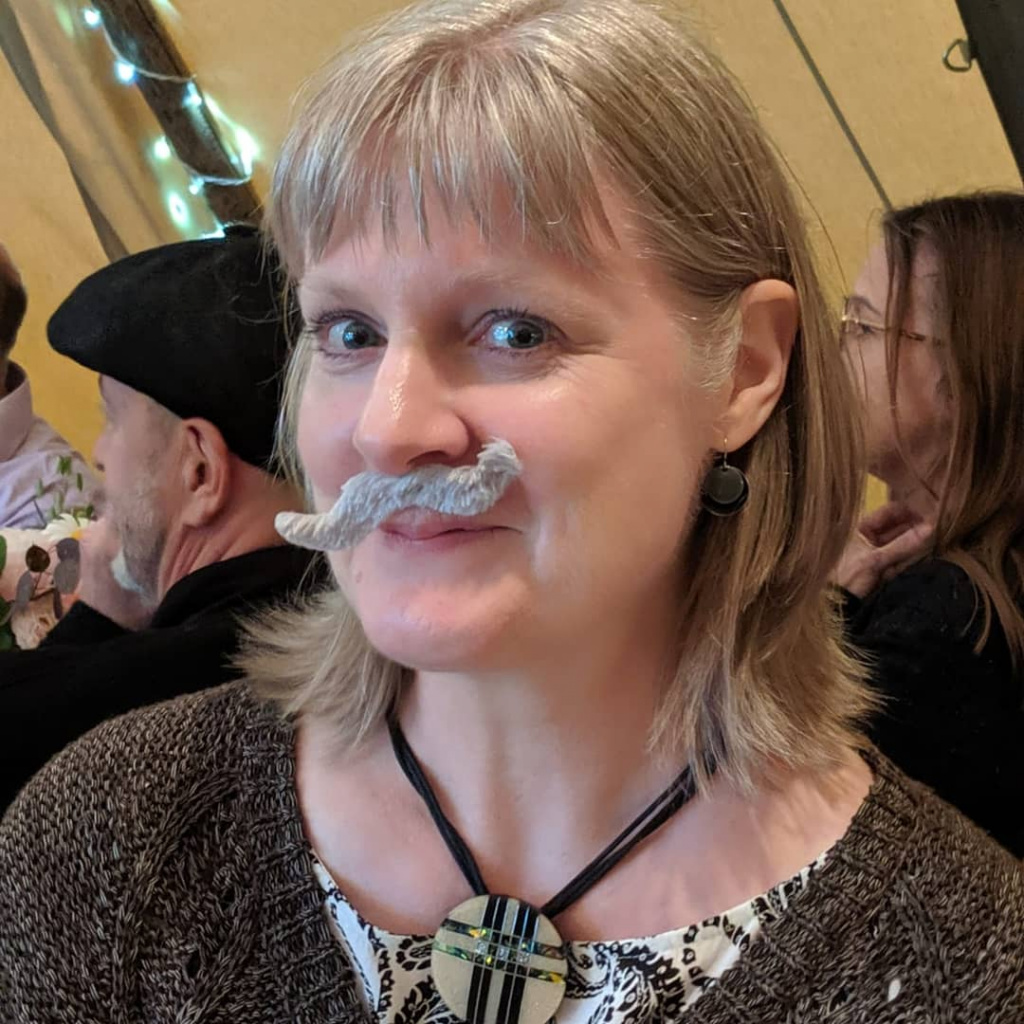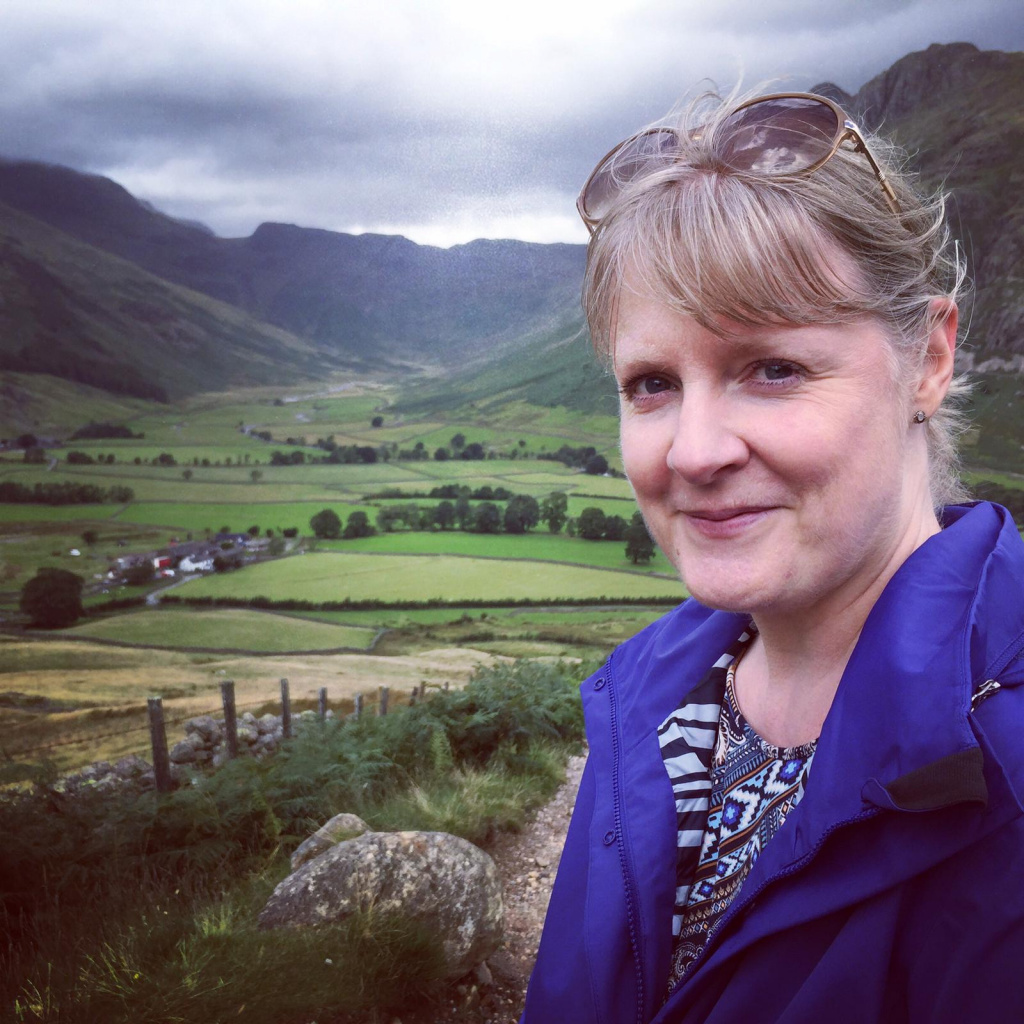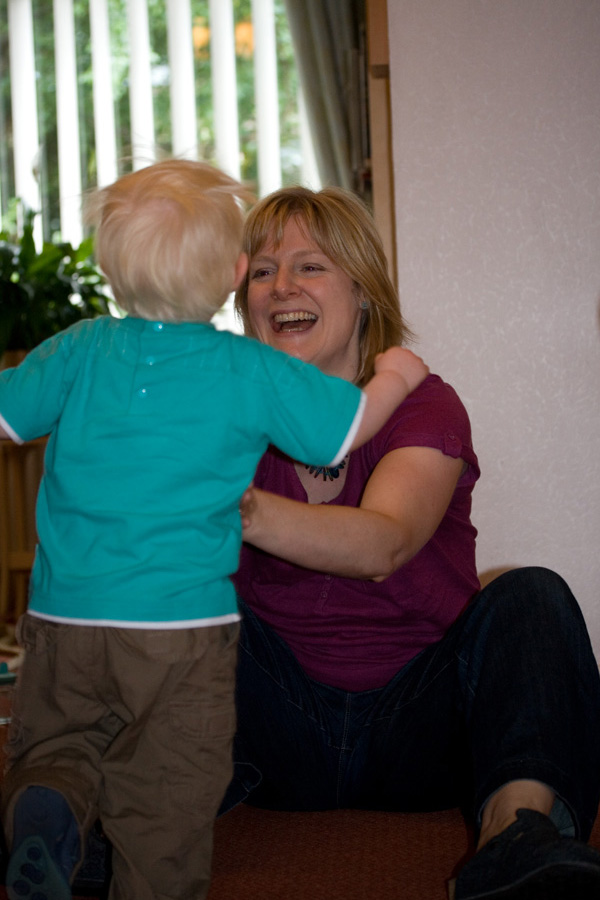How did you get there? Lynda Thompson

Great to hear from Lynda Thompson who started out installing box office ticketing systems then realised she could put her curiosity and skills to good use as a researcher in the construction and energy sectors. Despite her chaotic journey into research she still really loves red shoes…(see photo)
So, how did you get into the industry, and take us through how you got to this point?
By accident really (like so many research and insights professionals). After an American Studies and Film and Drama degree I started my career selling tickets at Cambridge Arts Theatre, then managing the box office at the London Philharmonic and following that, Aberdeen Box Office (I got bored easily and moved on quickly at that point). The company that installed the box office ticketing system then took me on as a trainer and I travelled the length and breadth of the UK (and went to Milan and Australia) installing the system and training box office, marketing and fundraising staff. All of this seems unrelated to research, but on reflection I was always curious, always looking to understand why users behaved as they did and what they needed from the software. I was also always immersed in each theatre community for the few weeks I was there and loved getting to know everyone and talking to them about their procedures, processes and behaviours (this involved quite a lot of smoking with the box office staff at stage door!).
Eventually, because I knew how to teach (I’d done a PGCE in the midst of all this) and fell in love with someone I taught at Northern Sinfonia’s box office, I decided to move to the North East and got a software training job with the National Building Specification. I stayed for 19 years, initially travelling and training architects and engineers and then moving into a user research role in the software development team. Then, when I eventually went on maternity leave after 7 years with them they didn’t really know where to put me when I came back, but there was a newly created market research team which proved to be an amazing fit. Given that I’d always worked in customer facing roles and travelled a lot gathering and recording customer feedback so it could be used for product and service development it made sense to do a job where you did that and got paid!

In an effort to formalise my experience and skills I did the MRS Certificate in Market and Social Research (while the kid was 2, I was quite proud of myself) and realised that I’d found my place. Everything clicked and made sense. My background in customer service and training, and interest in listening to customers and wanting to improve things based on what they said meant that I was a good fit for market research. I’d thought for many years that I was a people person who had to work with people in a ‘giving out information’ (training) capacity because I was good at it, but I finally realised that I’m curious and good at interviewing, moderating and listening. I went on to work on many B2B research projects client side and managed multiple iterations of a customer Advisory Panel as well as commissioning research with external agencies. The majority of my work has always been qualitative, I love talking to people and really getting to the bottom of why they do the things they do and say the things they say, but working in a small team meant I also had the chance to work on surveys and quantitative projects and understand how qual and quant complement each other.
I worked client side in the market research team, at the National Building Specification for 12 years (I was at the company for 19 years in total, while it was owned by the RIBA, Royal Institute of British Architects) and worked hard to understand the construction industry’s use of specifications, building information modelling (BIM), Building Regulations, contracts and manufacturers’ products amongst other things. My work improved the organisation’s software and customer interactions and their understanding of the industry. Over the years I contributed to their industry reports on BIM, Digital Construction, Sustainability and Contracts and Law.
Once I left NBS I became an independent researcher and this led to me carrying out research for organisations without having an allegiance to their business. In my opinion I’ve become a better researcher, and been more useful, as a result. I now appreciate there is a power in asking customers what they think of products and services in an effort to understand their motives and behaviour, without it necessarily being stated who’s asking. Customers are far more likely to be open and honest with a Certified market researcher than with the organisation they have an established relationship with. As well as still doing research projects within the built environment sectors I now also do qualitative research for the Fuel Bank Foundation charity and commission research projects on their behalf. I’ve always felt that the work I did was valuable, but given the current gas and electricity price increases, along with other cost of living rises, I now really feel that the work I’m doing is making a difference. I hope to do much more research like this in the future.
I now choose the work I do and I work for people who are doing things I believe are valuable (organisations committed to improving the built environment, construction manufacturers improving their sustainability, charities helping people in need, organisations ensuring buildings are compliant and maintained safely). I rent an office in a beautiful historic building (see photo) and I get a daily buzz out of moderating focus groups, interviewing people, building relationships with customers and hearing people’s motivations and concerns. Giving people a voice is an honour, seeing them share their concerns, generating debate and discussion is a pleasure. I’ve also rediscovered my love of software training and have been training asset and building managers who use building maintenance software SFG20.

Career paths are rarely without challenges. Can you share an honest moment from your career when things didn’t go quite according to plan, but the lessons remain with you to this day?
I’ve had a few stumbles if I’m honest, and they’re easier to identify and reflect on in retrospect (remember this if you’re reading this and you’re at the beginning of your career, it’s very easy to get caught up in a moment and feel like it’ll never end). If I’m honest I stayed in a client side role with one organisation for longer than was maybe good for my career, but bad health meant that I had to work within physical limits (I had endometriosis and it made having a good balance of life and work really hard, work often took priority over my personal life). I’m not entirely certain I made the right choices in relation to my health and home life, but I loved my work and learnt a lot from some key people who managed and mentored me, and I always believed in what the business was trying to achieve and gave it my all. The interesting thing now is that I’m now post-menopausal and endometriosis free I have a lot more energy and no pain, which makes me far more focused and committed (it also makes me very proud of what I achieved in my earlier years, I really had no idea how poorly I was).
I’ve been made redundant twice (once voluntarily, the other not voluntary but still absolutely the right thing for me and the business). I understand now that redundancy is never a bad thing (and if it’s handled with dignity it’s even better), there’s always a reason why you and the business aren’t a good fit anymore and no one should languish when they could be so much more fulfilled and productive, as I have now proved.

What two things should junior researchers focus on as they progress in their careers?
Be forever curious. Embrace being inquisitive. But always remember to keep perspective and check your sources, also don’t be intrusive (aka nosy). The whole point of market research is to learn about things you (or your clients) don’t know. It’s also better to be honest about not knowing something and wanting to understand from someone who does, in fact it’s liberating to acknowledge what you don’t know and learn. It’s ok to have an opinion too, in fact you are being paid not just to find things out but to report back and often recommend next steps.
Let the silences talk. Sometimes the break in a conversation can be most illuminating (the breaks in focus group discussions are often when I really get to the bottom of why architects, engineers and other construction professionals do what they do).

How do we ensure that students and those leaving school aspire to join our sector?
There’s a massive issue here with education and perceptions of market research (interestingly the construction sector also suffers from this). Job titles bug me. They mean so little and can actually alienate, mislead or make other people uncomfortable. What’s more important is the skills that you have and whether they lend themselves to market research or customer insight roles. I didn’t realise I was a good qualitative researcher until I’d done many other things (which I was variously good and bad at!). And, of course, I’m still learning, particularly now I work as a sole trader and don’t have the support of colleagues and HR/IT/Marketing/PR/Finance departments! I’ve also embraced the fact that I was a good software trainer and that I can still do that too, especially if research work is scarce some months.
Do you have any advice for our sector?
Be more open and transparent about how you employ and utilise freelance consultants like me. We have so much to offer but it would really help if it was clearer what contractual arrangements you have, if there is a transparent benchmark for paying consultants and how independents like me are used. I can absorb research objectives quickly and pickup and understand a discussion guide and carry out depth interviews without any fuss, what would it take for you commission me and use me on a project?
Also, my advice to anyone commissioning research; give us feedback on what you do with it, we’ll then get even better at helping you plan and do research if we can see the results being used. As researchers we shouldn’t be embarrassed to ask for this too.
And do you have anyone who has helped your career so far that you’d like to acknowledge and say thanks or give a shout out to?
I’ve been lucky enough to work with some really clever, generous and supportive researchers and managers in my time (and some dreadful ones, my advice there is to trust your gut and if it doesn’t feel right then it probably isn’t right, and you should get out or speak up).
One particular manager always worked with my ups and downs of feeling well and unwell with my endometriosis and knew that I would give my all when I could and that I would get my work done, but not necessarily within the traditional 9-5. I think if we’d had the pandemic lockdowns before we did it would have been more obvious sooner that I’m very efficient working from home and being productive. I’ve learnt a lot from fellow researchers and consequently have also always tried to be generous with my time and knowledge, it’s never made sense to me not to share and work together with others, we’re always stronger when we do.
